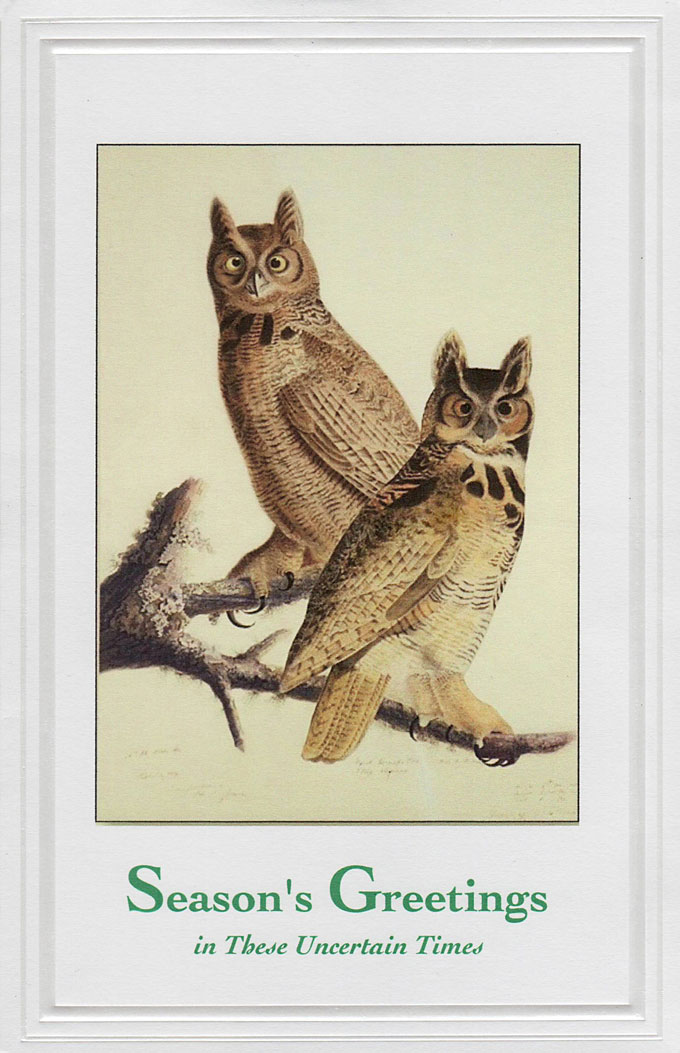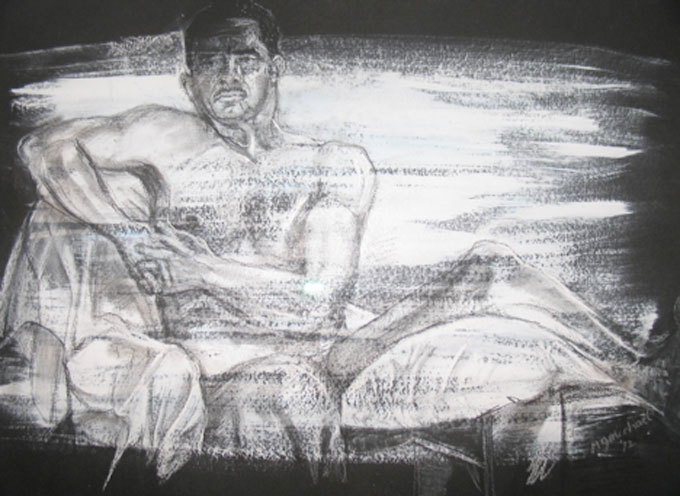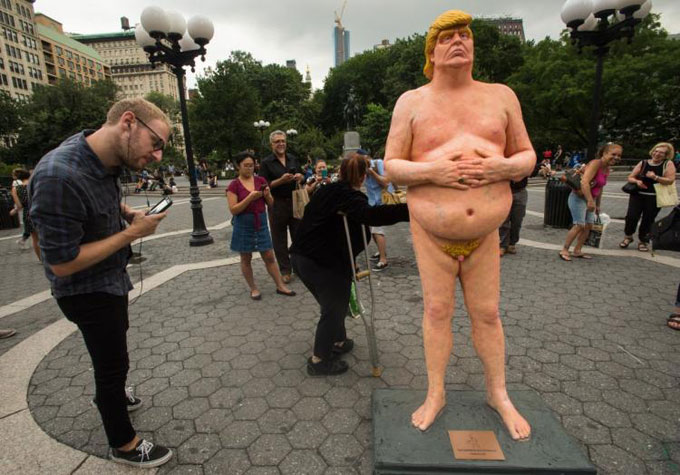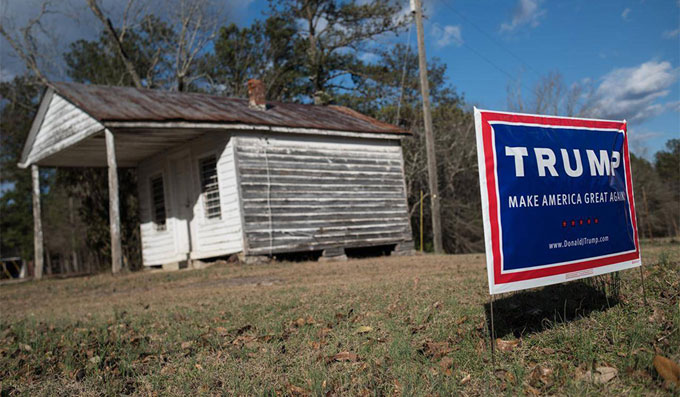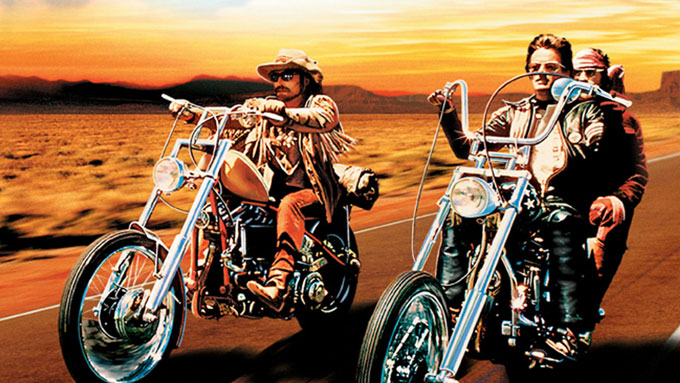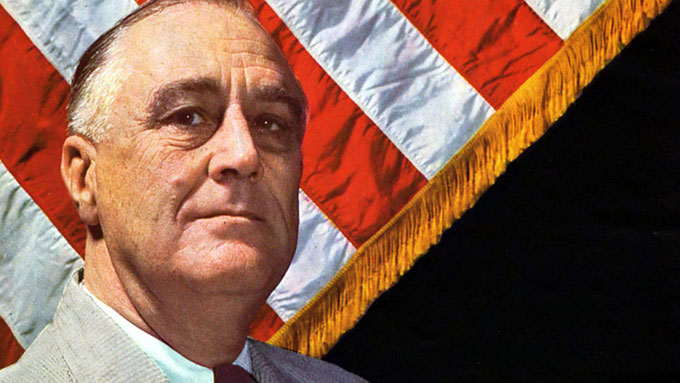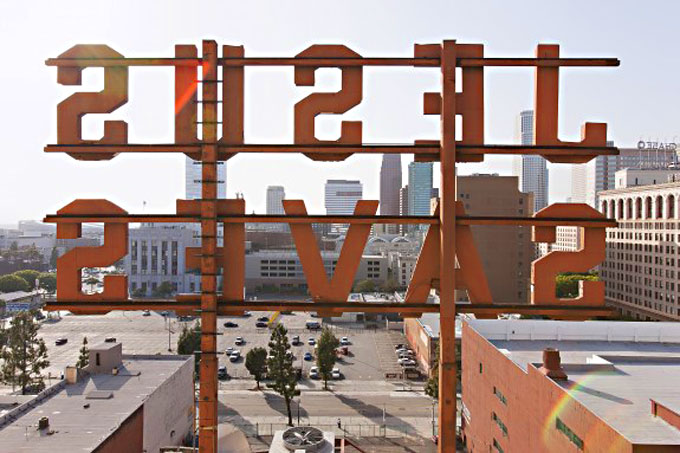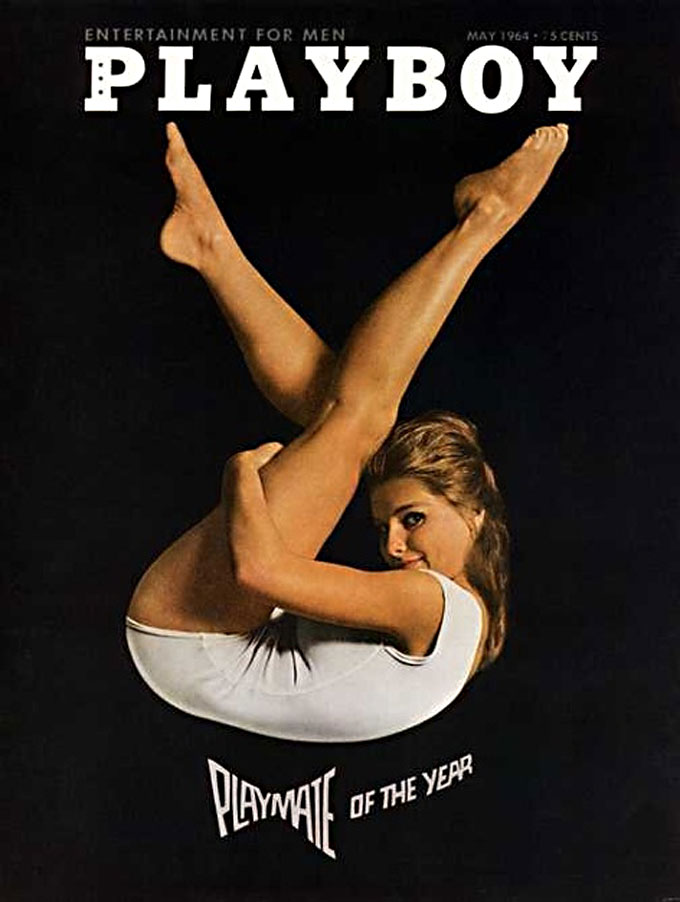Christmas Eve, with Owls
“I rejoice that there are owls. Let them do the . . . maniacal hooting for men.”
—Henry David Thoreau
In deepening shades of rose and magenta,
evening steals across Appalachian foothills
in this little tucked-away corner of Ohio we call home,
and a slivered moon, like a nail filing,
catches itself in the bare limbs of backyard trees
where last night in our grove of pines and oaks
a pair of great horned owls kept up their hoo-hooing,
the beat-beat of their bass drum carrying way beyond
our wrapping presents and offering holiday cheer,
finally echoing at the margins of our sleep,
that moment before the moment after,
when the last stirrings of children in our house—
eager for what they hope dawn will bring—
settled to quiet, and my love and I entered at last
a room inside a room, where we wondered if
our life on earth was ever-blessed as the good books say,
or only a brief dream, fearful and uncertain,
laden now by chill winds and more news
from our feathered pair, their dirge traveling
oceanic distances and blue-black star roads
this night of all nights, in this year like no other,
toward us, toward you.
In memory of Bob Bertholf, Helen DeMott, Jim Harrison, Mari Lyons, and Thom Steinbeck.
“Great Horned Owl” from John James Audubon’s Birds of America. Designed by Textual Healing.
